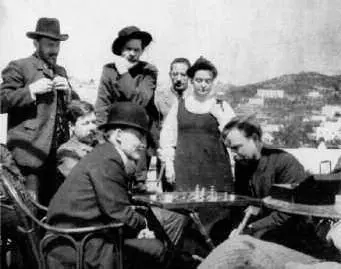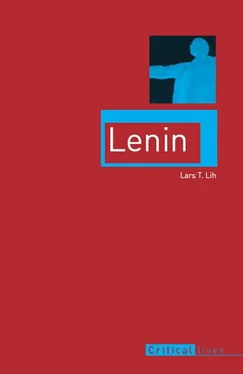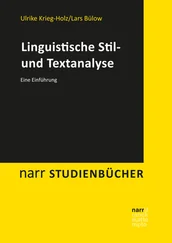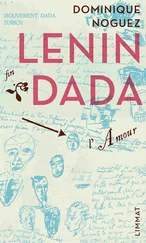Lars Lih - Lenin
Здесь есть возможность читать онлайн «Lars Lih - Lenin» весь текст электронной книги совершенно бесплатно (целиком полную версию без сокращений). В некоторых случаях можно слушать аудио, скачать через торрент в формате fb2 и присутствует краткое содержание. Город: London, Год выпуска: 2012, ISBN: 2012, Издательство: Reaktion Books, Жанр: Биографии и Мемуары, История, на английском языке. Описание произведения, (предисловие) а так же отзывы посетителей доступны на портале библиотеки ЛибКат.
- Название:Lenin
- Автор:
- Издательство:Reaktion Books
- Жанр:
- Год:2012
- Город:London
- ISBN:9781780230030
- Рейтинг книги:3 / 5. Голосов: 1
-
Избранное:Добавить в избранное
- Отзывы:
-
Ваша оценка:
- 60
- 1
- 2
- 3
- 4
- 5
Lenin: краткое содержание, описание и аннотация
Предлагаем к чтению аннотацию, описание, краткое содержание или предисловие (зависит от того, что написал сам автор книги «Lenin»). Если вы не нашли необходимую информацию о книге — напишите в комментариях, мы постараемся отыскать её.
Lenin — читать онлайн бесплатно полную книгу (весь текст) целиком
Ниже представлен текст книги, разбитый по страницам. Система сохранения места последней прочитанной страницы, позволяет с удобством читать онлайн бесплатно книгу «Lenin», без необходимости каждый раз заново искать на чём Вы остановились. Поставьте закладку, и сможете в любой момент перейти на страницу, на которой закончили чтение.
Интервал:
Закладка:
Lenin’s personal lifestyle was rather the stripped-down, orderly, no-frills style of his own ideal ‘revolutionary by trade’. His attitude toward food is emblematic. The Canadian historian Carter Elwood has investigated this topic and concluded that Lenin just didn’t care about food – as long as there was some on his plate, he ate it without complaint. 9
Another, much more sardonic, take on the type of the stubborn dreamer comes from Lev Tolstoy’s late novel Resurrection . This novel was published in 1900 and paints a devastating portrait of a morally bankrupt Russia. Toward the end of the novel, we meet some political prisoners on their way to Siberia. Tolstoy rather likes these political prisoners – except for their acknowledged leader, one Novodvorov:
The whole of Novodvorov’s revolutionary activity, though he could explain it very eloquently and very convincingly, appeared to be founded on nothing but ambition and the desire for supremacy. Being devoid of those moral and aesthetic qualities which call forth doubts and hesitation, he very soon acquired a position in the revolutionary world which satisfied him – that of leader of a party. Having once chosen a direction, he never doubted or hesitated, and was therefore certain that he never made a mistake… His self-assurance was so great that it either repelled people or made them submit to him. And as he carried on his activity among very young people who mistook his boundless self-assurance for depth and wisdom, the majority did submit to him and he had great success in revolutionary circles.
Novodvorov behaved well only to those who bowed before him. He couldn’t stand anyone who had his own independent analysis of Russia’s ills. 10
Those who knew Lenin tended to see him either as Pisarev’s heroic dreamer or Tolstoy’s petty despot, although most of the witnesses I will cite are somewhat nuanced in their judgements. Georgy Solomon (in whose Brussels apartment Lenin gave the late-night harangue about ‘recallism’ described in chapter Three) was strongly repelled by Lenin’s ‘impenetrable self-satisfaction’. Nevertheless, he was ready to qualify his dislike by adding that when Lenin was not in attack mode, ‘then before you stood an intelligent and broadly educated man, highly erudite, and distinguished by a fair amount of quick-wittedness’. 11
Alexander Bogdanov also tried to explain Lenin’s puzzling combination of breadth and narrowness. Bogdanov was a top Bolshevik leader until he was forced out of the faction in 1909. In 1914 he wrote a long, unpublished critique of Lenin’s mental style. He tells us that when Lenin ‘investigated a specific phenomenon, for example, the class composition and character of this or that party, he carries out the task, sometimes brilliantly’. But in larger questions Lenin’s way of thinking was much too rigid: he took over a framework from European experience and applied it to Russia come hell or high water. This intellectual rigidity and authoritarian manner of thinking meant that Lenin was prone to misinterpret a genuinely novel situation, for example, Russia after the 1905 revolution. 12

Nikolai Sukhanov – the author of the memoir of 1917 that occasioned Lenin’s 1923 article on the cultural deficit – tried to pin down his own impression of Lenin by making a comparison with Lev Tolstoy: both (writes Sukhanov) were true geniuses in certain very narrow areas, yet they each had ‘no understanding or grasp of the simplest and most generally accessible things’ outside of that area. 13
The combination of narrowness of mind and complete assurance gave rise to the abusive polemical style that appalled so many who had to deal with Lenin. Writing to his close friend Nadezhda Kristi in early 1917 the Menshevik leader L. Martov explains why he is happy to think that there is no life after death: ‘In my opinion, one earthly existence is more than enough: do you think it would be drôle to continue polemicizing with Lenin even after death and to continue to listen to his gutter abuse?’ 14
The same abusive style could be described, in an admiring way, as evidence of ‘intellectual passion’. Russian émigré Moishe Olgin, writing in 1919, describes Lenin in action:
Lenin does not reply to an opponent. He vivisects him. He is as keen as the edge of a razor. His mind works with an amazing acuteness. He notices every flaw in the line of argument. He disagrees with, and he draws the most absurd conclusions from, premises unacceptable to him. At the same time he is derisive. He ridicules his opponent. He castigates him. He makes you feel that his victim is an ignoramus, a fool, a presumptuous nonentity. You are swept by the power of his logic. You are overwhelmed by his intellectual passion. 15
The novelist Maxim Gorky knew Lenin quite well and also had mixed feelings that varied over time. In 1920 Gorky was even ready to talk about Lenin’s saintliness! In 1909, however, he wrote a rather harsh letter to Lenin. The letter contained compliments (‘You are someone who I find organically sympathetic’), but also a critique based on Hamlet’s metaphor of playing on someone like a recorder:
Sometimes it seems to me that for you every person is no more than a recorder on which you play this or that melody pleasing to you – that you evaluate each person’s individuality from the point of view of how useful they are to you, for the realization of your aims, opinions, tasks. This way of evaluating people (leaving to one side its profoundly individualist and elitist underlay) necessarily creates a void around you – and while this is not so important in itself, you are a strong character – but the main thing is, this way of evaluating people will surely lead you into making mistakes. 16
Gorky was repelled by Lenin’s instrumental attitude to the people around him. Lenin’s close associates understood this feature of Lenin’s personality, but they interpreted it in a different way. Zinoviev, looking back in the early 1930s, wrote that Lenin had an oshchushchenie about his personal mission, that is, a strong ‘feeling’ bordering on physical sensation:
Was there ‘egocentrism’ in Ilich? No.
Were there any dictatorial leanings? No.
But was there an awareness (feeling) that he was called? Yes , this there was! Without that he would not have become Lenin. Without that (precisely a strong feeling), there would be no vozhd at all.
At one time (when V. I. was still fighting for recognition), some one’s relation to him personally (or rather, not ‘personally,’ but politically and theoretically) was for him a criterion , a measure of things. Only we can’t understand this in a vulgar fashion. 17
The hero-worshipping attitude to Lenin that existed even before the Bolshevik revolution comes out in a description of Lenin written in 1917 by Nikolai Bukharin, who knew Lenin well. For followers like Bukharin, Lenin himself was the ultimate inspired and inspiring leader:
The Russian and international proletariat has found themselves a worthy vozhd in the person of Lenin. A veteran revolutionary, Lenin was christened on the path of revolution by the blood of his own brother, hanged by the butcher Alexander III. And hatred toward the oppressors took deep root in his soul. Lenin has a highly analytical mind and yet at the same time he is a person of iron will, always travelling the path that he considers the correct one. He is equally firm when he must swim almost alone ‘against the current’ and when he needs to work in the midst of his own people. Revolution is his element. He is a genuine vozhd of the revolution, following out his own logic to the end, scourging any half-heartedness, any refusal to draw conclusions. 18
Читать дальшеИнтервал:
Закладка:
Похожие книги на «Lenin»
Представляем Вашему вниманию похожие книги на «Lenin» списком для выбора. Мы отобрали схожую по названию и смыслу литературу в надежде предоставить читателям больше вариантов отыскать новые, интересные, ещё непрочитанные произведения.
Обсуждение, отзывы о книге «Lenin» и просто собственные мнения читателей. Оставьте ваши комментарии, напишите, что Вы думаете о произведении, его смысле или главных героях. Укажите что конкретно понравилось, а что нет, и почему Вы так считаете.












